From the time the first enslaved Africans arrived in England’s colonies in America to present-day efforts to bring about racial equity in the United States, Black people — and other people of color — have demonstrated extraordinary resilience in the face of adversity. But given the nonstop onslaught of racism, It’s understandable that people subjected to injustice and inhumanity sometimes feel hopeless.
Makeena Rivers, a Black Baha’i based in New York City, says the Baha’i Faith gives her hope despite living in a time when racism is a daily reality. She also believes that hopelessness about racial injustice “comes from people not knowing how to change the root” cause of racism.
RELATED: Staying Hopeful in a Racist Society
“We always talk about institutional and structural racism,” says Makeena. But “at the root, there are people who have diseased hearts — their hearts are diseased by racism.”
As a Baha’i, Makeena understands that racism — and the failure to recognize the oneness of humanity — is a spiritual illness. In this interview for the Race Unity Project, she explains that our “culture is fueled by” this ignorance and negligence of the spiritual reality that “we are one” and “interconnected.”
As Baha’u’llah, the prophet and founder of the Baha’i Faith, wrote:
Since We have created you all from one same substance it is incumbent on you to be even as one soul, to walk with the same feet, eat with the same mouth and dwell in the same land, that from your inmost being, by your deeds and actions, the signs of oneness and the essence of detachment may be made manifest.
That unity is our ultimate goal, but people of color are still suffering because of racism. As the National Spiritual Assembly, the national advisory body, of the Baha’is of the United States wrote in 1991:
It is entirely human to fail if that which is most important to people’s self-perception is denied them — namely, the dignity they derive from a genuine regard by others for their stature as human beings. ...Absence of the genuine regard for others fostered by such truth causes hopelessness in those discriminated against; and in a state of hopelessness, people lose the coherent moral powers to realize their potential.
Experts say members of marginalized communities who experience the trauma of racism, in addition to being disproportionately negatively affected by the coronavirus, may be experiencing more depression and hopelessness than ever before. The killing of innocent Black people, like Breonna Taylor and George Floyd — and recently, teenagers Daunte Wright and Ma’Khia Bryant — contributes to this.
According to The Washington Post, “The rate of black Americans showing clinically significant signs of anxiety or depressive disorders jumped from 36 percent to 41 percent in the week after the video of Floyd’s death became public. That represents roughly 1.4 million more people.”
Baha’is understand how debilitating racism can be and how paramount achieving race unity is for the welfare of humanity. In 1938, Shoghi Effendi, the Guardian of the Baha’i Faith, instructed Baha’is to have “an abiding sense of undeviating justice” and foster “a fraternity freed from that cancerous growth of racial prejudice.”
Like Makeena, the global Baha’i community is actively involved in fostering interracial fellowship at the grassroots level through hosting interfaith prayer gatherings, mentoring adolescents, facilitating discussions about personal and community development, and teaching children about their spiritual qualities.
RELATED: How Community Service Created Lasting Friendships
Sharing honest reflections about race relations — like Makeena’s — is the goal of The Race Unity Project. The initiative is produced by Journalism for Change, Inc, a nonprofit media organization founded by filmmaker and human rights activist Maziar Bahari. Through interviews with Baha’is from around the country, the project tells “the century-long story of the American Baha’i community and its efforts — as well as its tests and challenges — in promoting race unity.”
Videos from “The Race Unity Project” include a variety of candid discussions — including heartwarming stories of how an interracial couple helped changed minds and hearts and inspiring reflections about how the Baha’i Faith has helped people find their life’s purpose.
Watch as Makeena also discusses the constructive resilience of the Black community in the face of racial oppression and injustice.
“I think that our music, the things we contribute to arts, the academics and scientific advancements we made — all had to have been the fruits of constructive resilience,” she says.
Radiance Talley serves as the director of operations at BahaiTeachings.org, where she integrates her expertise in SEO, journalism, design, and publishing into every aspect of her work. She has edited and written hundreds of articles for BahaiTeachings.org and has also written and optimized articles for...
READ MORE

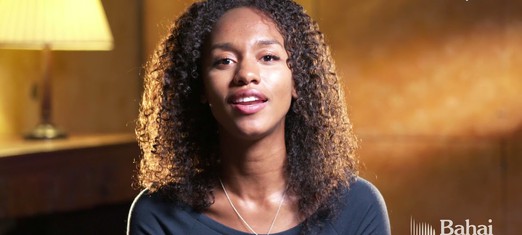

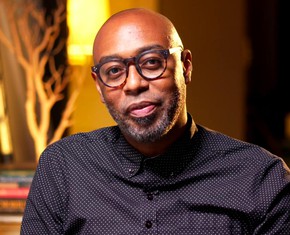
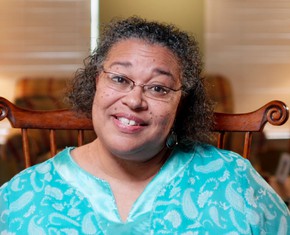
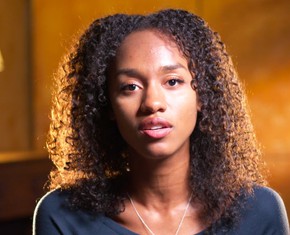
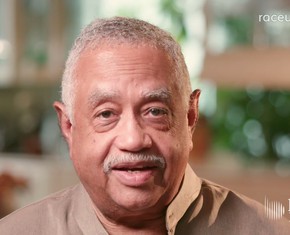









Comments
Sign in or create an account
Continue with Googleor